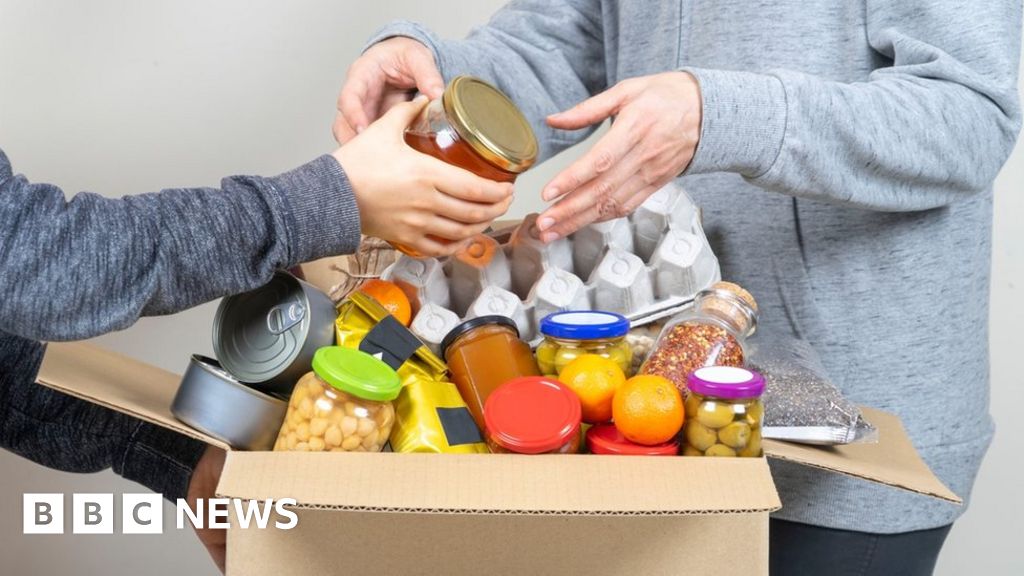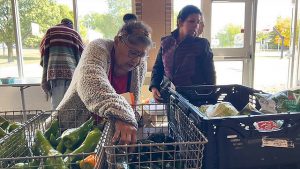MARION — If you come out to the Marion VA Medical Center on Thursday, you might have thought fair season opened early with all the music, tents, lawn games, drumming, lawn yoga, and refreshments.

Participants return from the VA2K walk at Marion VA Medical Center Thursday during a health fair event.
Robert Robbins
People came to the VA campus to see what the event was all about, which was a multifaceted health fair put on by the VA and community groups.
“We couldn’t ask for better weather for a better day!” said Willy Martinez, Public Affairs Specialist for the VA.
The health fair wasn’t just about one thing, but several.
There was a food drive called “Stuff the Bus” where people could donate their pantry goods in attempt to fill up a bus.
The Stuff the Bus event, meant to be a creative take on past donation drives, drew lines of people donating to food insecure veterans.
People are also reading…

A bus is parked outside the Marion VA Medical Center on Thursday during a fair-like gathering. The bus was filled with pantry donations for veterans who need help with food.
Robert Robbins
“I just want to say thanks to all the community partners who have come out to help us stuff the bus,” said Martinez.

A woman is seen walking across the parking lot of Marion VA Medical Center on Thursday during the health fair, near information tents educating the public about all the services the VA offers.
Robert Robbins
Another event going on was a health walk called VA2k, where community partners helped to put on the event and staff could be seen walking the campus grounds along the sidewalks.
VA Hosts health fair, VA2K, and food drive.
“We walk to show









